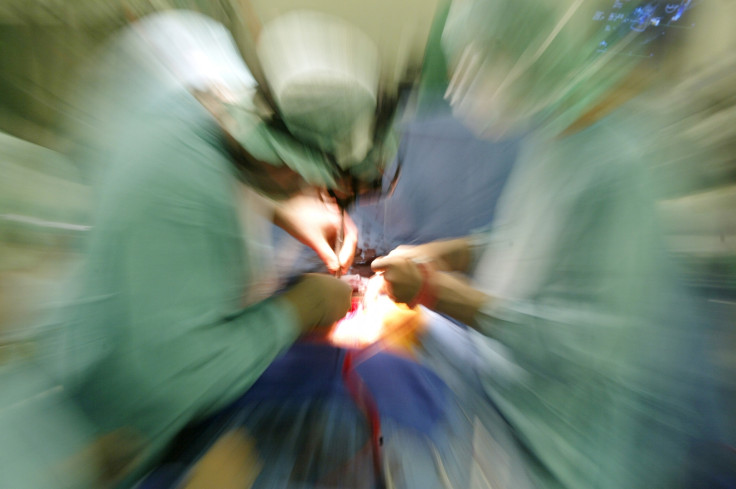First human head transplant 'could take place in 2 years' neurosurgeon Sergio Canavero claims

The world's first human head transplant could take place in two years, according to an Italian neurosurgeon.
Dr Sergio Canavero, from the Turin Advanced Neuromodulation Group in Italy, has said the major hurdles of performing such an operation are solvable, including stopping the body's immune system from rejecting the head and fusing the spinal cord to it.
According to a report in the New Scientist, Canavero will launch the first attempt at a surgical conference later this year. He said the operation itself could take place as early as 2017.
The procedure has the potential to transform the lives of people who suffer from muscle and nerve degeneration. "I think we are now at a point when the technical aspects are all feasible," he said.
Canavero published a summary of the technique he believes will be successful in Surgical Neurology International. The donor body and the recipient's head would be cooled down so their cells can survive without oxygen.
For the operation, the tissue around the neck is dissected and the blood vessels are linked using tubes. After this, the spinal cords of each person are cut and the head is moved onto the donor body at the two ends of the spinal cord, and this is fused together. This is the key point of the surgery, he said.
Muscles and blood supply would be attached and the patient would be left in a coma for about four weeks to prevent any movement. The spine would be stimulated with implanted electrodes in order to strengthen nerve connections.
Once they wake up, Canavero believes the patient who has received the head transplant would be able to move and feel their face and would speak with their own voice. He predicts they could walk within a year.
The first successful head transplant was performed on a monkey in 1970. Surgeons did not try to fuse the spinal cords so it could not walk, but it could breathe with assistance. It lived for nine days before the body rejected the new head.
William Mathews, chairman of the American Academy of Neurological and Orthopaedic Surgeons (AANOS), said he does not think rejection would be a major problem today because of the drugs that have been developed to counteract this issue.
Several people have already put themselves forward to receive a new body. However, one of the biggest hurdles will be finding a country that will authorise the transplant.
"The real stumbling block is the ethics," Canavero said. "Should this surgery be done at all? There are obviously going to be many people who disagree with it."
Others also said they doubt the procedure will take place.
Harry Goldsmith, a clinical professor of neurological surgery at the University of California, Davis, told the New Scientist: "This is such an overwhelming project, the possibility of it happening is very unlikely. I don't believe it will ever work, there are too many problems with the procedure. Trying to keep someone healthy in a coma for four weeks – it's not going to happen."
Canavero added: "If society doesn't want it, I won't do it. Before going to the moon, you want to make sure people will follow you."
© Copyright IBTimes 2025. All rights reserved.






















